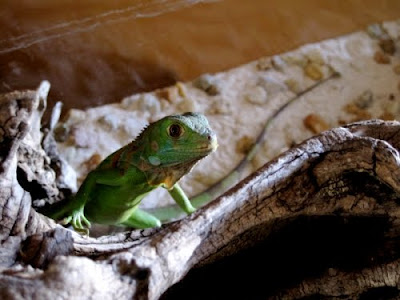This past Christmas was the first time I spent the holiday away from my family. In Guatemala, everyone celebrates Christmas the day before. So, for Christmas Eve dinner, my flatmate and I baked our respective comfort foods: a pavlova (she's a Kiwi) and an apple crisp (I'm very North American). We then went over to my host father's aunt's house and watched Willy Wonka the remake, which was super creepy, and listened to firecrackers going off all over town. Everyone loves setting off fireworks in Guatemala to celebrate something, whether it's just a birthday or a national holiday, and so rarely a day goes by without me hearing them. It's also not just kids who do it. Even middle-aged folk have fun lighting them on the sidewalk and scurrying away to escape the deafening noise. But anyways, I digress. Once the clock struck midnight, the entire family and I went around the table hugging one another and wishing each other Feliz Navidad. It was very comforting for me to be welcomed into my host father's family, especially since I am so far away from my own. We then had a traditional dinner of paches as they say in Xela, otherwise known as tamales, the former being of potatoes, the latter of rice, before exchanging gifts.
On Christmas Day, some friends and I attended an epicurean potluck dinner at a communal yoga house. After satisfying our stomachs with macaroni and cheese, vegetable stew, mashed potatoes, and other savory delights, we sat around a fire ablaze in an old metal drum on the terrace, drinking wine and exchanging real life ghost stories. It was not something I would ever think of doing on or associate with Christmas, but it was certainly a memorably chilling night for all.
Today, I was supposed to go on a hiking trip but instead, I came down with a cold. Admittedly, I am feeling rather restless as I have been in Xela for nearly two months and am anxious to explore the rest of this incredibly beautiful country. The landscape, formed by volcanic activity, is nothing like anything I have seen before. From pine-cypress highland forests, to humid and misty cloud forests, to tropical lowlands and sunny beaches, Guatemala, as small as it is, has unbelievably rich cultural and biodiversity. It goes without saying that I have loved every hike I've gone on thus far and am eager to do more.
View of a chain of volcanoes from the top of Volcán Santa María
Looking down at Xela while descending Volcán Santa María
A sleepy morning in Santiago Atitlán, Lago de Atitlán
To update some of my older posts, I think my former Spanish teacher was a bit misinformed. There is a ton of foreign aid and investment in terms of development and well, the U.S. is “Guatemala's largest trading partner, providing 36% of Guatemala's imports and receiving 39.2% of its export.” There you have it. That means Levi's jeans are made in Guatemalan maquiladoras, labeled in the States, and sent back to Guatemala to be sold for an inflated price. What's more, I went to Xela's biggest paca, essentially a clothing flea market with piles and piles of clothes heaped on table after table, sometimes even in the bed of a pickup truck, most of which is sold for 1Q a piece (roughly 12 cents). While browsing through a row of jeans hanging on a wire, a familiar white and green tag caught my eye; it was none other than from Saver's, a thrift store chain I used to frequent quite often while living in the States.
On a brighter note, I would like to welcome the newest additions to our family.
Hamlet, the Great Dane. He's the biggest puppy I've ever seen.
Two new baby iguanas (other one not pictured).

I know bread's not exactly an animal, but it was a Christmas present I made for my host family because baking is something I have confidence in. Thanks goes to my father who cut out Jim Lahey of Sullivan Street Bakery's No Knead Bread recipe for me when it was first published in the New York Times back in 2006. I let the article collect dust in my desk for years until I had the guts to try baking yeasted breads last year. Since then, I haven't looked back.









